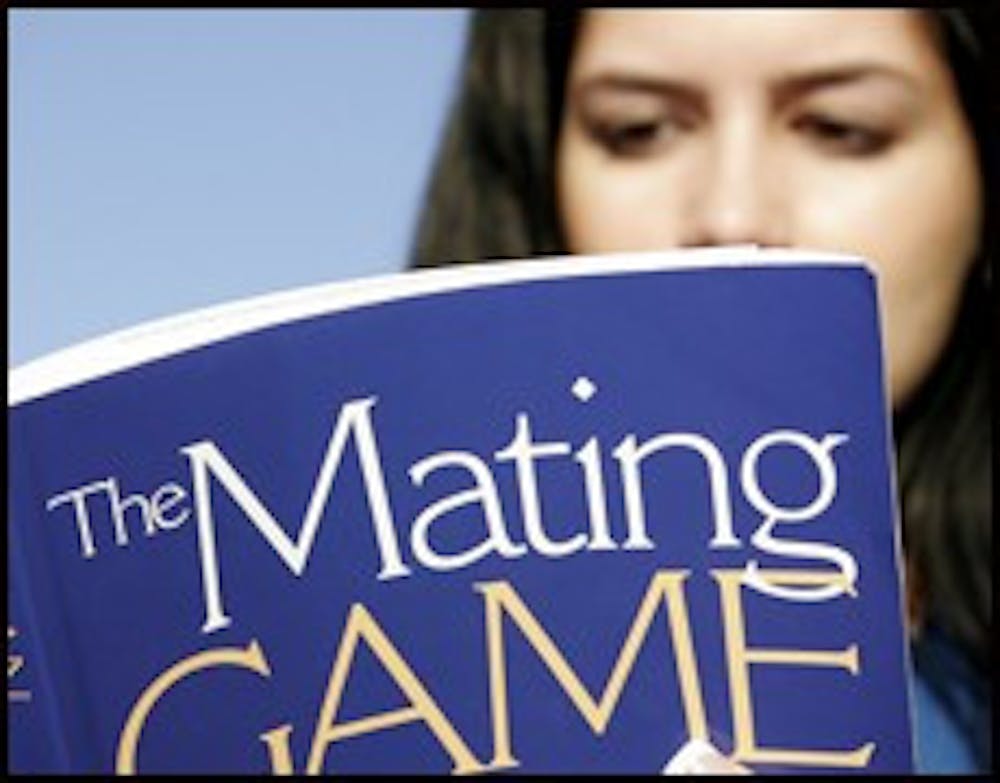One week after making his way across the Atlantic, French exchange student Geoffrey Marx met an American girl at a party. He smiled and leaned in, greeting the girl with a kiss on either cheek of the normal French introduction.
Unfortunately, in mid-lean the greeting was misinterpreted, and with a look of disgust the girl reeled back, her shocked eyes announcing to Marx that this was most inappropriate.
"She must have thought I was some sort of cheese-eating pervert," says Marx.
Such cultural misunderstandings are not uncommon say many of ASU's international students, especially when it comes to dating.
According to Amy Shenberger, the program coordinator at the International Programs Office, confusion over dating practices is usually the biggest cultural problem reported by international students. Shenberger says she gets at least a few visits every year from confused internationals looking for advice or guidance on a romantic issue.
But she says this doesn't surprise her.
"This is a very personal area where people are dealing with sensitive feelings and can be even more stressful when you're in a new environment," she says.
She says she's noticed that misunderstandings are usually a result of communication breakdowns.
"Most problems tend to occur when people are trying to work out if another person is interested and then how they define what constitutes a date," she says.
But international students say the practice of dating, so enshrined in U.S. culture, doesn't exist in most other countries.
"At home we just go with our feelings," says Marx. "But in America dating is like this codified system where you must go on a formal date if you want to start a relationship."
By 'system' Marx says he's referring to the unspoken rules he has observed that govern the way Americans act when they're attracted to each other.
"Girls give you their phone number, but then don't expect you to call," he says. "Or don't pick up because you haven't left it for the required amount of days. It's crazy."
Marx's exasperation is shared by Dominic Best, a British student completing a four-year theatre degree at ASU. He says most American girls he's met "just want to play games," which he's not used to.
"In Britain the attitude is more open and real, it's like 'be honest with your feelings and get on with it,'" he says.
One of the main problems, according to Marx, is that many Americans are too worried about reputation.
"Many girls seem afraid of being labeled sluts by their peers so they blame their 'misbehavior' on alcohol, or give guys an unnecessarily hard time," he says.
But Arizona native and political science junior Kristina Day disagrees.
She says she's not looking for a relationship and therefore when she goes out she wants to keep the people she meets confined to that night.
"I go out to have fun and I sometimes meet guys, but I'm unlikely to see them again."
The way to avoid such cultural misinterpretations, according to Shenberger, is by simply paying attention to the little things.
"I think generally it's all about reading the subtle cues," she says. "I think Americans are sometimes very friendly in a noncommittal way, which can be misread."
Not all international students see American romantic culture as closed and conservative. Dylan Paul, a journalism freshman from Zimbabwe, says compared to his home country, America is anything but conservative.
He says he got a serious shock when he first encountered how liberal Americans were on issues of sex.
"I was getting to know this nice American girl soon after I got here and one day I casually asked her how many guys she had been involved with," he says. "To my surprise, she paused for a brief moment and then told me how many guys she had slept with."
Paul had meant to ask how many men the girl had kissed, not had sex with, and was shocked when she disclosed such personal information.
"Where I'm from, this would be one of those taboo moments because even a married woman would rarely openly express such information to her husband," he says.
Paul says both social and dating practices are extremely liberal in the U.S. compared to Zimbabwe.
"It is common here for a girl to openly make a move on a guy, while back home, with our conservative social structure, such behavior is unheard of and a woman might only attempt to initiate a relationship if she is a prostitute and has something to sell," he says.
Images of American pop culture exported to countries like Zimbabwe often create a false impression of American culture, says Paul.
"Before I came here I had the misconception that all American girls are wild, drink-loving, bedroom-grinding sex beasts," he says.
Six months later the false impression remains, he says, with just one minor alteration: "Not all of them are that way."
Reach the reporter at sam.friedman@asu.edu.




